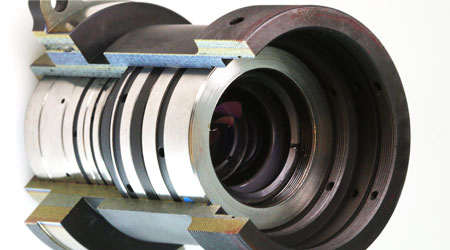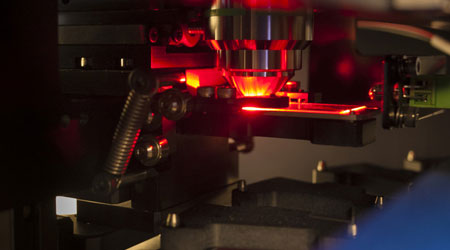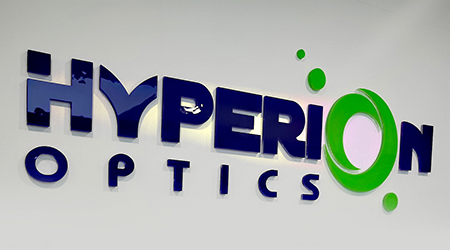Diamond has some remarkable properties: for example, its refractive index is 2.4, which is very high, and can be made into thinner optical components for optical systems with the same optical power. Their thermal conductivity is 2000 W/m*K, 1400 times higher than that of optical glass.
So far, polycrystalline diamond substrates have only been used as light windows for carbon dioxide lasers. Due to impurities and defects, they absorb and scatter laser radiation at the emission wavelength of 1 micron, so they are not suitable for fiber lasers. Although single crystal diamonds do not have this problem, they are difficult to manufacture. Over the years, the German Fraunhofer Institute for Applied Solid State Physics (IAF) has been devoted to the production of single crystal diamond. The continuous vapor deposition (CVD) reaction chamber developed in IAF has stable plasma conditions and it can produce a substrate with a thickness of several millimeters.
It can simultaneously process 60 diamonds at most. At a rate of up to 30 microns per hour, the reaction chamber can produce an optical element with an aperture of about 10 millimeters.
The lenses made of these synthetic single crystal diamonds have low absorptivity and low birefringence. At present, some samples coated with antireflection film have been provided and used in fiber laser cutting head. "We have optimized a complete laser optical system for diamond lenses for the first time, and the weight of the cutting head has been reduced by 90%," said Martin Traub of the Fraunhof Institute of laser technology".
The lens with a diameter of 7mm has passed the test of 2 kW laser power, without any problems. Now, partners have built a cutting test system using 1kW fiber lasers. Water cooling and protective gas supply are integrated in the cutting head. Process monitoring has not been planned. Currently, compact cutting heads is in process of testing for the first time.
A new optical system will significantly enhance the flexibility of laser cutting. The small size enables the system to process inaccessible areas, while the low weight is beneficial to the high dynamic motion in the 3D process.

 Call us on:
Call us on:  Email us:
Email us:  9B-4F, No.1 Qingnian Road Liando U Valley,Yuhua International Wisdom Valley, Nanjing, 210039 China
9B-4F, No.1 Qingnian Road Liando U Valley,Yuhua International Wisdom Valley, Nanjing, 210039 China 








 English
English  cn
cn  de
de  es
es  fr
fr 


